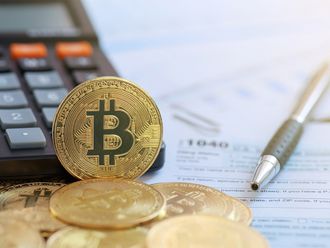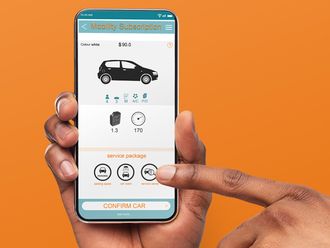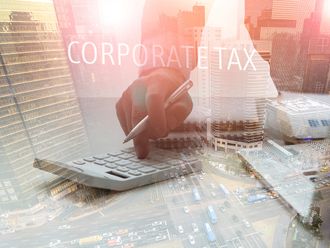Recently published statistics point to mixed results for Bahrain's economy in 2009.
The Economic Development Board (EDB), the entity in charge of designing and implementing Bahrain's economic strategies, released numerous reports last week claiming the country had achieved outstanding economic performance and had great prospects.
For instance, the reports said Bahrain's gross domestic product (GDP) had grown by the nominal rate of 3.1 per cent in 2009 versus an average of 7.1 per cent in the past five years or so.
Strangely enough, the EDB tried to suggest that this was anything but an exceptional achievement, restricting the blame to the financial crisis which emerged as a threat to the global economy in the second half of 2008.
In reality, a growth rate of more than three per cent should be regarded as an outstanding accomplishment in an otherwise difficult year.
Still, EDB reports projected real GDP growth rate, adjusted for inflation, at four per cent in 2010 on the back of steady spending. Concurrently, it was suggested that inflation would average around two per cent in 2010, no change from 2009.
More likely than otherwise, stronger GDP growth rates should translate into higher rather than static inflationary pressures. Proof of steady governmental spending abounded, with budgeted spending for the fiscal year 2010 budget put at $6.2 billion (Dh22.8 billion), up from $5.7 billion in actual expenditures in 2009.
This was a sizeable spending level by the public sector in a relatively small economy, amounting to 29 per cent of GDP in current prices but considerably higher in constant terms.
At the same time, the EDB warned that the budgetary deficit posed the greatest threat to Bahrain's economic wellbeing. However, this was an exaggeration, as treasury revenues for the fiscal year 2010 were based on a uniquely conservative oil figure.
The authorities prepared the budget with an average oil price of $40 per barrel, which is significantly below today's market rate.
Assumed shortfall
With this kind of average oil price, the budget for 2010 assumed a shortfall of $2.3 billion, or 37 per cent of total spending.
Nevertheless, chances are that actual treasury income would end up being noticeably higher than projected, reflecting the simple fact that the petroleum sector accounts for three quarters of total treasury income.
Furthermore, EDB reports claimed that Bahrain's economy was not so dependent on the petroleum sector, by pointing out that crude oil and natural gas had comprised a mere 13 per cent of GDP in constant prices in 2009.
In fact, the figure underpays the role of the petroleum sector in the economy, as oil refining is included in the manufacturing sector. Nearly half of the manufacturing sector relates to the refining of crude oil into petroleum products such as diesel.
Still, the petroleum sector accounts for nearly 80 per cent of exports and, as indicated above, a sizeable portion of treasury income. More proof of Bahrain's increasing rather than decreasing reliance on the petroleum sector was evident in granting major oil concessions designed to augment production capacity.
In 2009, the US's Occidental Holding and the UAE's Mubadala won a 20-year contract to increase output from onshore fields, from the current 33,000 barrels per day to a maximum of 100,000 barrels per day by 2028.
Right now, Bahrain's main source of oil is 150,000 barrels per day from Abu Saafa. Saudi Arabia controls the offshore field, which boasts production of 300,000 barrels per day, with output divided equally between the two countries.
Undoubtedly, Bahrain's economy stands out within the Gulf Co-operation Council (GCC) as being broadly diversified.
But reports should be fair and mention all facts when presenting economic statistics.
The writer is a Member of Parliament in Bahrain.












